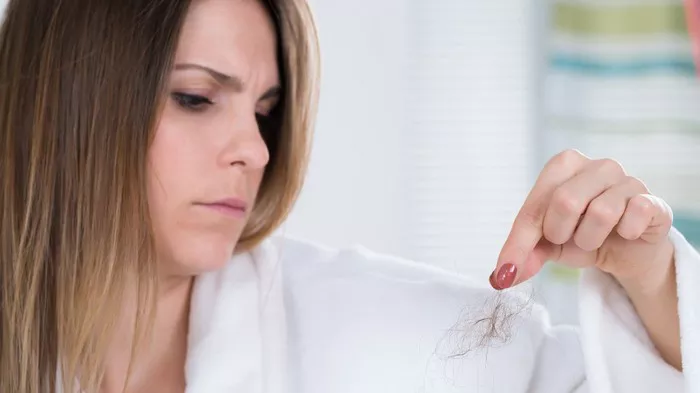Hair loss is a common concern that affects millions of individuals worldwide. While there are various factors that can contribute to hair loss, such as genetics, hormonal imbalances, and stress, nutrition plays a vital role in maintaining healthy hair. Consuming a well-balanced diet rich in essential vitamins, minerals, and nutrients can support hair health and potentially prevent hair loss. In this comprehensive article, we will explore a range of hair-friendly foods and nutrients that you can incorporate into your diet to nourish your locks and promote a healthy head of hair.
Hair-Friendly Foods to Include in Your Diet
1. Salmon
Salmon is an excellent source of omega-3 fatty acids, which support scalp health and may help reduce inflammation that can contribute to hair loss. Omega-3s also nourish the hair follicles and keep the scalp hydrated.
2. Eggs
Eggs are rich in biotin, a B-vitamin that supports healthy hair growth and helps strengthen the hair shaft. Biotin deficiency has been linked to hair loss, making eggs a valuable addition to your diet.
3. Spinach
Spinach is packed with nutrients like iron, folate, and vitamins A and C, all of which contribute to healthy hair growth. Iron deficiency can lead to hair loss, and incorporating iron-rich foods like spinach can help prevent this.
4. Sweet Potatoes
Sweet potatoes are a great source of beta-carotene, a precursor to vitamin A. Vitamin A supports the production of sebum, the natural oil that keeps the scalp and hair moisturized and healthy.
5. Nuts and Seeds
Nuts and seeds, such as walnuts, almonds, flaxseeds, and chia seeds, are rich in omega-3s, zinc, and selenium. These nutrients support hair growth and scalp health, making nuts and seeds an excellent snack for promoting hair health.
6. Berries
Berries, like strawberries, blueberries, and raspberries, are rich in vitamin C, which aids in collagen production. Collagen is essential for the structure of the hair and can help strengthen the hair shaft.
7. Greek yogurt
Greek yogurt is a good source of protein, which is crucial for the growth and repair of hair follicles. It also contains vitamin B5 (pantothenic acid), which may help reduce hair thinning and loss.
8. Beans and Legumes
Beans and legumes, such as lentils and chickpeas, are rich in protein, iron, zinc, and biotin, all of which contribute to healthy hair growth and overall hair health.
9. Avocado
Avocado is a source of healthy fats and vitamin E, which is an antioxidant that helps protect the hair follicles from oxidative stress.
10. Carrots
Carrots are rich in beta-carotene, which the body converts into vitamin A. As mentioned earlier, vitamin A supports the production of sebum, keeping the hair and scalp nourished.
Other Nutrients for Hair Health
In addition to the foods mentioned above, several essential nutrients contribute to healthy hair growth and can be obtained through a well-balanced diet. These include:
1. Vitamin D:
Supports hair follicle cycling and overall hair health. You can get vitamin D from sun exposure, fortified foods, and supplements if needed.
2. Zinc:
Important for hair structure and growth. Foods like oysters, beef, and pumpkin seeds are rich in zinc.
3. Iron:
Essential for oxygen transport to the hair follicles. Incorporate iron-rich foods like lean meats, tofu, and beans into your diet.
4. Vitamin C:
Supports collagen production and aids in iron absorption. Citrus fruits, strawberries, and bell peppers are excellent sources of vitamin C.
5. Vitamin E:
An antioxidant that protects the hair follicles from oxidative stress. Nuts, seeds, and leafy greens are good sources of vitamin E.
6. Selenium:
An antioxidant mineral that supports hair health. Brazil nuts, tuna, and sardines are rich in selenium.
Conclusion
Preventing hair loss and promoting healthy hair growth starts from within. Nourishing your locks with a nutrient-rich diet can significantly impact the health and vitality of your hair. By incorporating hair-friendly foods that are rich in essential vitamins, minerals, and nutrients, you can support your hair growth cycle and maintain a luscious head of hair. Remember to consult with a healthcare professional or a registered dietitian if you have specific concerns or if you are considering adding supplements to your diet. With a balanced and nourishing diet, you can embrace your beautiful, vibrant tresses and exude confidence in every step of your hair care journey.


